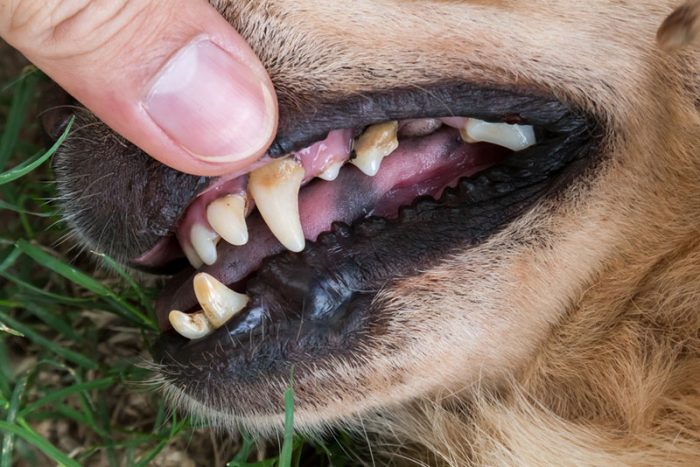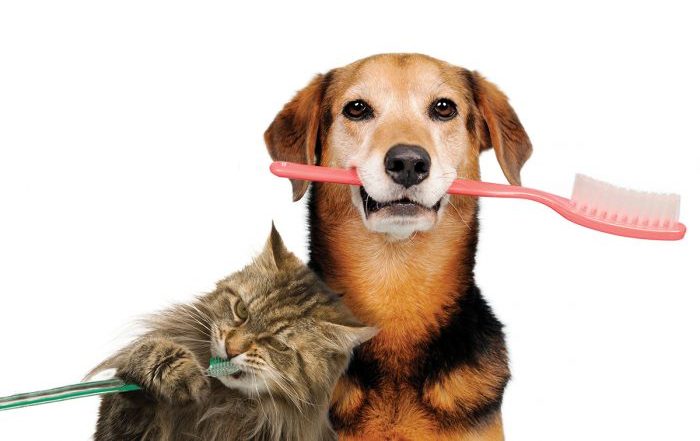Some pet owners consider it a waste of time and resources to invest in a good dental routine for their pets while others who understand the benefits would continue to make the effort. In all, both the pet and the parent benefits from maintaining good pet dental health. Naturally, your pet’s lack of dental care and hygiene can lead to several life-threatening factors as oral bacteria are known to travel through the bloodstream and harm vital organs.
According to research, a pet that gets to enjoy a good dental routine and regular professional cleaning is likely to live longer than the one without them. While it might not be an easy routine to keep up with, especially if your pet doesn’t like it, it is something to religiously stick to as the benefits are far too numerous. That said, the following facts debunk some disputable myths about pet dental health that have been around for ages.
Table of Contents
1. Bad breath is normal for dogs
It is possible to catch a whiff of bad breath from your pet when hugging but is this actually normal? Well, this shouldn’t be trivialized at all as it can be an indication of a more severe health challenge like periodontal disease. Halitosis, as it is called, is caused when anaerobic bacteria digest some particular amino acids. Moreover, research has shown that a condition like periodontitis can cause bone damage around the affected teeth which can even affect a dog’s kidney, liver, and heart.
So, the next time you notice a foul breath coming from your pet, don’t wave it off as one of those things. Constant cleaning of the mouth when due is important to keep diseases at bay.
2. Dental chews are all I need to cover pet dental health needs
This is not to discredit the use of dental chews in any way but to draw attention to the fact that it is not enough if you want a healthy set of teeth for your pet. Chews are enjoyable but shouldn’t replace actual brushing. According to our findings, some dental chews can reduce up to 70% of plaque which will make cleaning easy for people with fussy pets.
However, as pointed out earlier, chews aren’t a replacement for regular dental checkups which can help spot any problem and tackle them early to avoid complications. Chews are a very good over-the-counter supplement before dental exams. Pet owners should look out for brands that are approved by the Vet Oral Health Council.
Read Also: How To Enjoy The Cold Winter With Your Dog
3. There is no need for me to take my pet for a professional dental cleaning
Interesting, cleaning the mouth is not equally enough if you desire a healthy pet. Most pet owners believe that once they regularly clean their pet’s teeth and add some dental chews to their diet, there is no need to take them in for professional cleaning. This is not only detrimental to pet dental health but its entire body might be at risk.
It should be noted that white teeth don’t equal a healthy mouth. Moreover, some dog breeds, for example, are genetically predisposed to having dental issues. These pets will need professional help to make sure their mouths are as healthy as possible. Another benefit of professional dental cleaning is that it can help clean areas that are hard to reach while brushing – like under the gumline.

4. Feeding a hard/dry kibble can keep my pet’s teeth clean
Just like chews, dry kibbles can actually reduce plaque and tartar on your pet’s teeth due to their gritty texture. They are also good for a pet’s dental health. But, it is still not enough as the only dental care and it can actually do more harm than good to your pet’s well-being. This is because most commercial pet foods are high in carbohydrates and the sugar can adhere firmly to their teeth surface which can then lead to tartar and then another gum disease.
However, prescription dental diets are not formulated in the same way as standard dry foods. The dental diets are made in such a way that the tooth has to sink in before the kibble breaks apart which will scrape away more plaque. As effective as they can be, they cannot remove all the traces of plaque and tartar and cannot clean below the gumline. In other words, the standard brushing of teeth should still be observed to keep pet dental health at its best.
5. As my pet ages, there is an increased chance of having an oral disease
According to animal experts, there is no link between aging and developing dental disease. If your pet receives good oral care at home and regular professional cleanings, they are less likely to develop dental issues even as they get older. Research has also shown that good oral care can add an average of two years to your pet’s life.
Thus, if you start from puppyhood to boost and maintain the pet’s dental health, you might just be helping it live a longer life. The next time you notice an abnormal stench or changes in your older pet’s mouth, don’t assume they are the result of old age.
Read Also: Can Dogs Get Lice? 4 Ways To Get Rid Of Them And Everything You Need To Know
6. Any toothbrush and toothpaste will be able to meet my pet’s actual dental needs
Most pet owners make the mistake of using an old human toothbrush, as well as toothpaste for their pets. This is a no-no for a number of reasons. First off, most regular human toothpaste contains xylitol which is very harmful to pets if they ingest it. Moreover, pet products are flavored with pet-friendly ingredients like peanut butter, chicken and so on which can make them look forward to the activity. So, using toothpaste made for humans will not only discourage your pet from brushing but can also cause some health issues.
As regards their toothbrushes, because they have really sensitive gums, the bristles on human brushes can be too harsh for comfort. Moreover, small pets will enjoy the brushing process more with finger brushes which will be easier to maneuver in the mouth.
In conclusion, two things must be taken note of – your pet doesn’t know that toothpaste should be spat out while brushing which means it might swallow the whole thing and if it contains any harmful substances, it’s a problem. Another thing every pet parent needs to know is that though they look tough, dogs actually have sensitive gums and human toothbrushes can be too hard on them.
